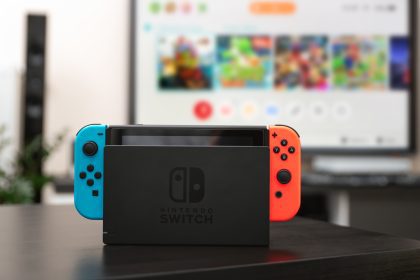Using your phone regularly keeps the brain healthy. This finding contradicts popular beliefs about technology use and offers new insights into cognitive health maintenance for an aging population.
It is regularly suggested that being glued to the devices is harmful to brain health but neuroscientists in the US have found that people over 50 who spend a lot of time on the gadgets had lower rates of cognitive decline. The research challenges conventional wisdom about screen time, suggesting that digital engagement might actually serve as a form of mental exercise for older adults.
“You can flip on the news on just about any day and you’ll see people talking about how technologies are harming us. People often use the terms ‘brain drain’ and ‘brain rot’, and now digital dementia is an emerging phrase. As researchers, we wanted to know if this was true.” The research team’s findings represent a significant shift in understanding how technology impacts cognitive health across different age groups.
The difficulties older adults face in getting to grips with modern technology are cognitively beneficial for them. These challenges appear to activate neural pathways that might otherwise remain dormant, creating what scientists call “positive stress” that strengthens brain function over time.
“One of the first things that middle-age and older adults were saying is that, ‘I’m so frustrated by this computer. This is hard to learn.’ That’s actually a reflection of the cognitive challenge, which may be beneficial for the brain even if it doesn’t feel great in the moment.” This phenomenon resembles the mental exercise provided by traditional brain games and puzzles, but with the added benefit of practical skill development.
The research contradicts earlier studies that focused primarily on children and adolescents, where excessive screen time has been associated with attention problems and sleep disruption. For adults over 50, however, the cognitive demands of navigating apps, remembering passwords, and learning new digital skills appear to provide valuable mental exercise.
Participants in the study who used smartphones regularly showed improved performance in memory tests, faster processing speeds, and better problem-solving abilities compared to less frequent users. The benefits were most pronounced among those who engaged with a diverse range of applications rather than limiting themselves to passive activities.
The digital world requires constant adaptation and learning. For older adults, this continuous cognitive engagement seems to build what scientists call ‘cognitive reserve’—essentially, a buffer against age-related decline. This concept of cognitive reserve has been well-established in other contexts, such as bilingualism and musical training.
The findings also revealed that social media use, often criticized as mindless scrolling, actually provided significant cognitive benefits when it involved active engagement. Users who regularly commented, shared content, and participated in online discussions showed greater improvements in verbal fluency and social cognition compared to passive consumers of content.
Evidence suggests that digital social engagement may partially compensate for the reduced in-person social contact that often occurs with aging. Since social isolation is a major risk factor for cognitive decline, this digital connection appears to offer protective effects. The research team found that participants who maintained active digital social networks showed better cognitive outcomes over time.
The study recommends that adults incorporate a variety of digital activities into their daily routines, particularly those that present novel challenges. Learning new applications, navigating unfamiliar interfaces, and engaging with interactive content appear to provide the most significant cognitive benefits.
However, researchers caution that quality of engagement matters more than quantity. The benefits come from mentally stimulating activities that require focus and learning, not passive consumption. The ideal pattern appears to be regular, varied engagement that continually presents new challenges rather than mindless habit.
These findings may have important implications for how we approach aging and technology adoption in the future. Rather than discouraging older adults from using digital devices, the research suggests that guided technology adoption could become a component of cognitive health programs, potentially offering a practical and enjoyable way to maintain brain function throughout later life.















